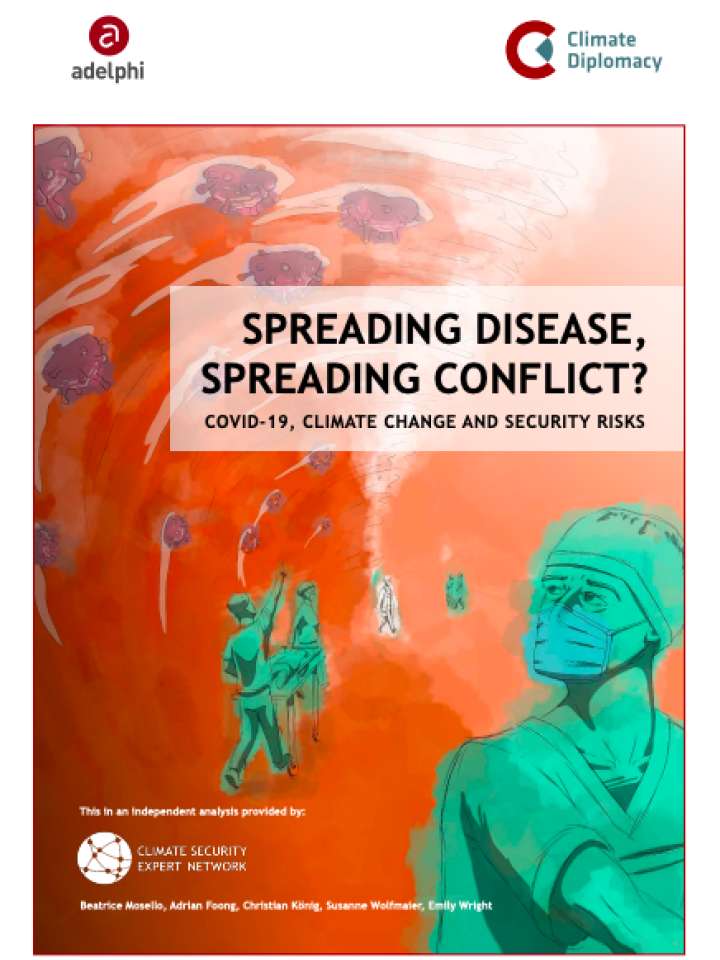Spreading disease, spreading conflict? COVID-19, climate change and security risks
This paper explores how COVID-19 compounds the known climate-fragility risks, with a specific focus on contexts that are already characterised by situations of fragility and conflict. It then suggests entry points to respond to these evolving risks, and how we can ‘build back better’ from the pandemic, while at the same time tackle the climate crisis.
From the analysis, five entry points are identified to respond to these evolving risks and to ‘build back better’ both from the pandemic itself and the climate crisis. We recommend governments and bilateral and multilateral donors to:
- Integrate analyses of risks and vulnerabilities through context-specific assessments and disaggregated data by sex, age and other metrics to develop targeted responses
- Move to multi-sector and inclusive approaches: climate-related security risks do not fit within the parameters of most existing institutions; even more so as we count in the impacts of COVID-19.
- Ensure additional and long-term funding: at present, governments and bilateral and multilateral donors are largely diverting resources that are still needed for climate change adaptation to COVID-19 responses.
- Connect community-level and global action: COVID-19 responses have shown the importance of community-level mobilisation.
- Make the case for multilateralism: the COVID-19 pandemic has been a stark reminder that its impacts, like the impacts of climate change, have a global reach, and hence the most effective solutions are through international cooperation, and not through narrow nationalist agendas.
Explore further
